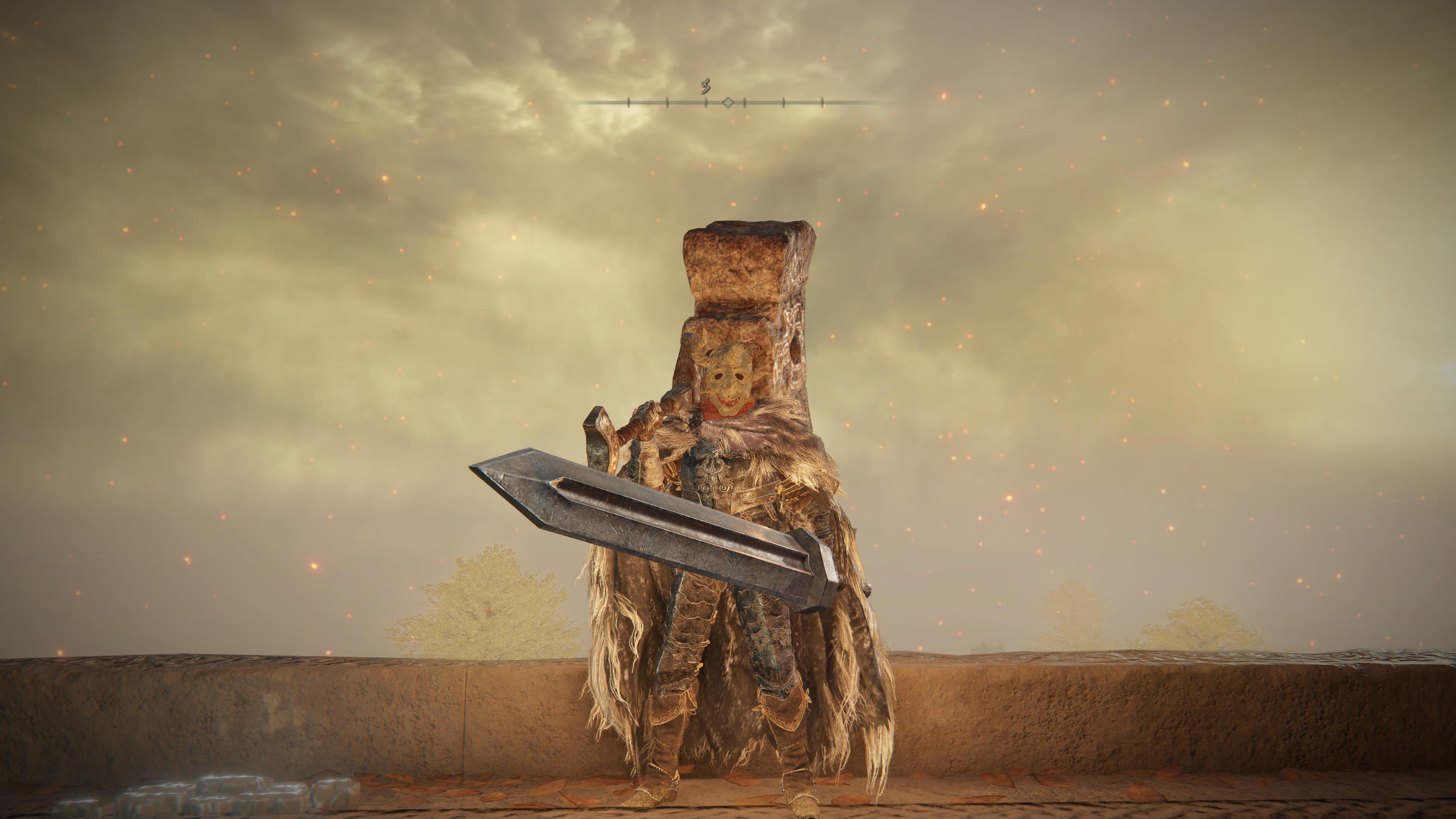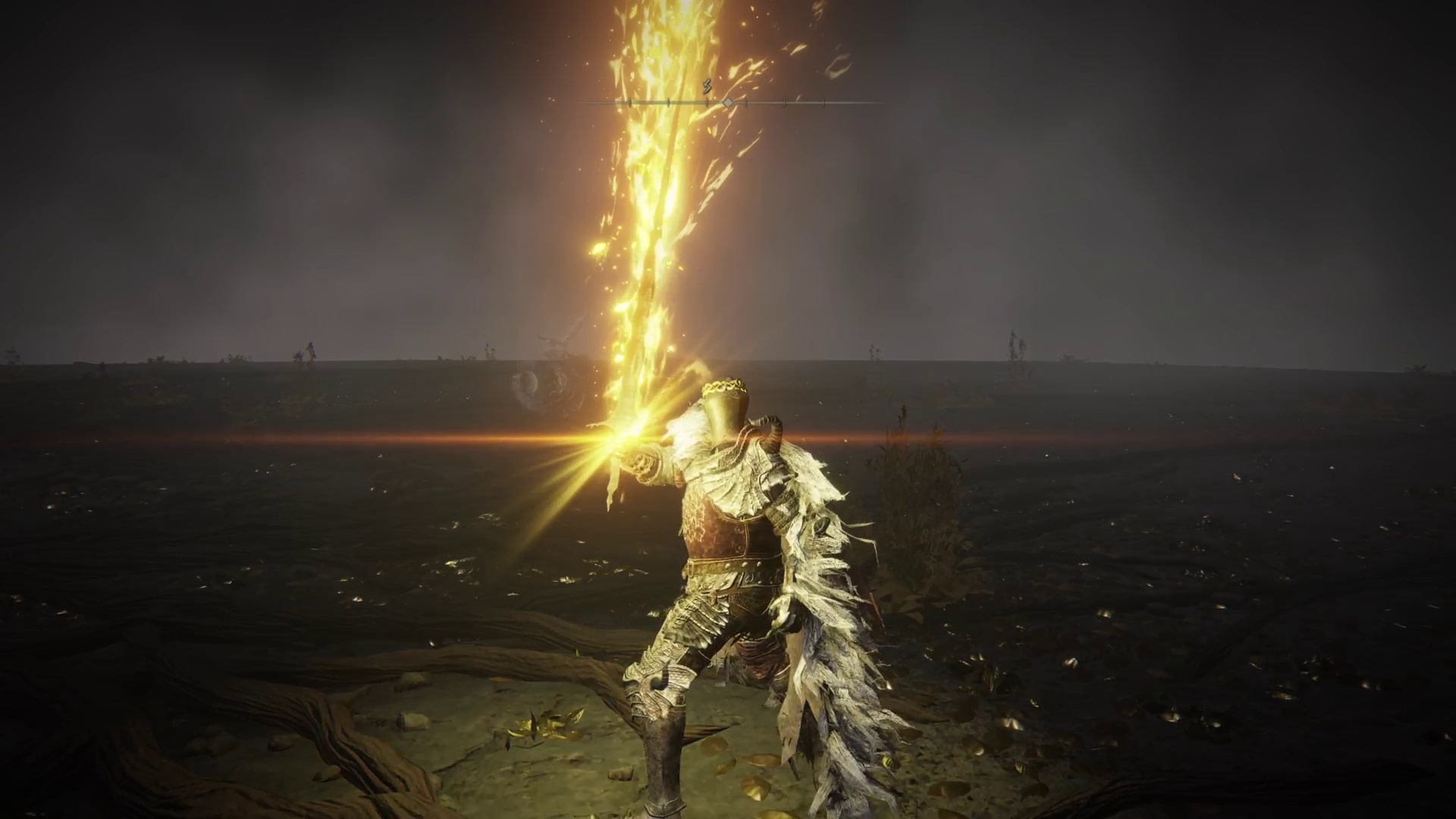Elden Ring players are shaping the meta in real-time and there is no easy mode
FromSoftware wants players to use every tool at their disposal

Whatever you might think is currently undermining the difficulty of Elden Ring, it's clearly doing a terrible job of it. Does magic make the game too easy? Evidently not; patch 1.04 just buffed the pants off dozens of spells. Maybe it's colossal weapons with their high stagger and long reach? Nope, they got buffed too, and in a way that makes their jump attacks less oppressive. Are spirit summons too powerful? Not in FromSoftware's eyes; they basically haven't touched the things since bringing the Mimic more in line with other spirits.
Elden Ring players are getting stronger every patch, and every round of balance changes reinforces the sentiment that, unlike some outspoken melee purists, FromSoftware wants players to use everything in the game. Nothing makes Elden Ring too easy. Not spirits, not multiplayer, and certainly not magic. Players are welcome to limit their own options for the sake of personal challenges, but the people who made the Lands Between are practically shoveling tools at us, and it's turning Elden Ring into the most dynamic game in the increasingly broad Souls series.
A world bent around players

All of FromSoftware's action RPGs have been patched to some extent, usually to buff weapons and spells between infrequent nerfs to the few standout nails that really do need to be hammered down. But Elden Ring is on another level already. The bigger games get and the more stuff you put in them, the harder it becomes to balance everything, and Elden Ring's vast world came with an equally vast armory. It's been fascinating to watch the game evolve as players discover and exploit optimal strategies, and as FromSoftware steers players in response.
Elden Ring's patch notes are like the rings on a tree. You can see FromSoftware's thinking and extrapolate what the studio likely would have drawn from player behavior. For example, the first big batch of balance changes improved the damage and reduced the FP cost of tons of spells, immediately pouring cold water on the persistent narrative that magic is some sort of overpowered insta-win button. In fact, magic was a bit restrictive. High FP costs constrained spell choices and made magic super reliant on Mind and mana flasks, which could hamstring some spell-heavy builds in the early to mid-game. This patch also made shields and many craftable consumables more effective. Even with guard counters, many shields weren't competing with the power of dual-wielding, and lots of players were likely ignoring crafted items (I still am, admittedly), so they got a boost.
At the same time, this patch reaffirmed that FromSoftware doesn't want everyone to use one Ash of War or a single weapon for everything. It didn't make this wonderfully flexible weapon art and infusion system just to have a few things suck all the oxygen out of the room. In this case, that was the Hoarfrost Stomp and the Sword of Night and Flame, which caught two of the biggest early nerfs in the game. Both of these are still very powerful, but they aren't totally boxing out competing gear the way they used to.

The most recent update is even more interesting, starting with the way it handled colossal weapons. Because these weapons are so ungainly, Strength builds started to revolve almost exclusively around special attacks and jumping attacks. Special attack effectiveness would depend on your weapon or Ash of War, but jumping attacks were universally overpowered. They hit as hard as strong attacks but didn't have any windup, plus you could roll out of them more quickly. They were just a better, safer option.
Enter patch 1.04, which specifically boosts the attack speed, two-handed attack damage, physical block rate, and recovery speed of colossal weapons – except for their jump attacks. The patch notes straight-up specify "jump attack not included." FromSoftware was clearly aware that we were all jumping around like maniacs and ignoring the majority of colossal move sets, so once again, the studio sweetened the deal. But critically, it didn't nerf jump attacks. You can still exploit Elden Ring's newfound verticality and revolutionary jump button to your heart's content, but standard colossal moves are a lot more viable now.
Weekly digests, tales from the communities you love, and more
To buff or nerf

This feels like a pretty elegant way to go about balancing what is for most people a primarily single-player, PvE-focused game. Unless something is truly best in class to the point that it obviates all other choices or utterly trivializes all challenge, it's often better, and always more fun, to see buffs instead of nerfs in games like this. And even when it has nerfed outlier spells and weapons, FromSoftware has never totally gutted anything in Elden Ring, plus the game's few nerfs have been paired with buffs that presented more things to try.
The laundry list of weapon skill adjustments in patch 1.04 is just as important here. To go back to the magic debate for a minute, the dirty little secret of Intelligence and Faith builds is that weapon skills can go toe-to-toe with spells. Magic is sometimes perceived as overpowered in Souls games because it provides ranged and AoE damage which can be used proactively, often outside of an enemy's attack range. The thing is, many of the dozens of weapon skills that just got buffed do the same thing. Every build in the game has access to magic-like ranged attacks, including pure Strength and Dexterity builds, and now a lot of those moves come out faster and cost less FP – a resource that non-casters are likely to have less of.
Any sufficiently advanced Strength build is indistinguishable from magic
Magic was never overpowered, spells were just nominally exclusive to caster builds and the grass sometimes looked greener on the other side. More than anything, Elden Ring's schools of magic create different power fantasies for players to pursue: you can conjure a storm of elements as a devout mage, or you can become the storm itself as an ardent warrior. Either way, everyone has magic in Elden Ring, and oversized swords are among the strongest wands. You know what they say: any sufficiently advanced Strength build is indistinguishable from magic. Or to put it another way, I cast fist.
Elden Ring's balance changes have strengthened overlooked abilities and gear or made them easier to use. Virtually all builds have gotten noticeably stronger in the process, but I don't get the feeling that the devs set out to make the game easier. That's looking at it the wrong way. FromSoftware wants us to use more stuff, and it wants us to want to use more stuff. Because when a game is well balanced, it's harder and more interesting to decide what to build around. Spells and colossal weapons and summons and so on aren't undermining the intended Elden Ring experience; they're catching up to it and even defining it. And in a global act of jolly cooperation, players are actively shaping how the game is balanced and therefore experienced.
Elden Ring weapons | Elden Ring armor locations | Elden Ring Smithing Stones | Elden Ring Somber Smithing Stones | Elden Ring Ancient Dragon Smithing Stones | Elden Ring best builds | Elden Ring best spells | Elden Ring weapon scaling explained | How to strengthen weapons in Elden Ring | Elden Ring Ashes of War | How to get the Elden Ring Golden Scarab | Elden Ring Stonesword Keys | Elden Ring Meteorite Staff | Best Elden Ring early game weapons | Elden Ring Sacred Relic Sword | Elden Ring Mimic Tear

Austin has been a game journalist for 12 years, having freelanced for the likes of PC Gamer, Eurogamer, IGN, Sports Illustrated, and more while finishing his journalism degree. He's been with GamesRadar+ since 2019. They've yet to realize his position is a cover for his career-spanning Destiny column, and he's kept the ruse going with a lot of news and the occasional feature, all while playing as many roguelikes as possible.


